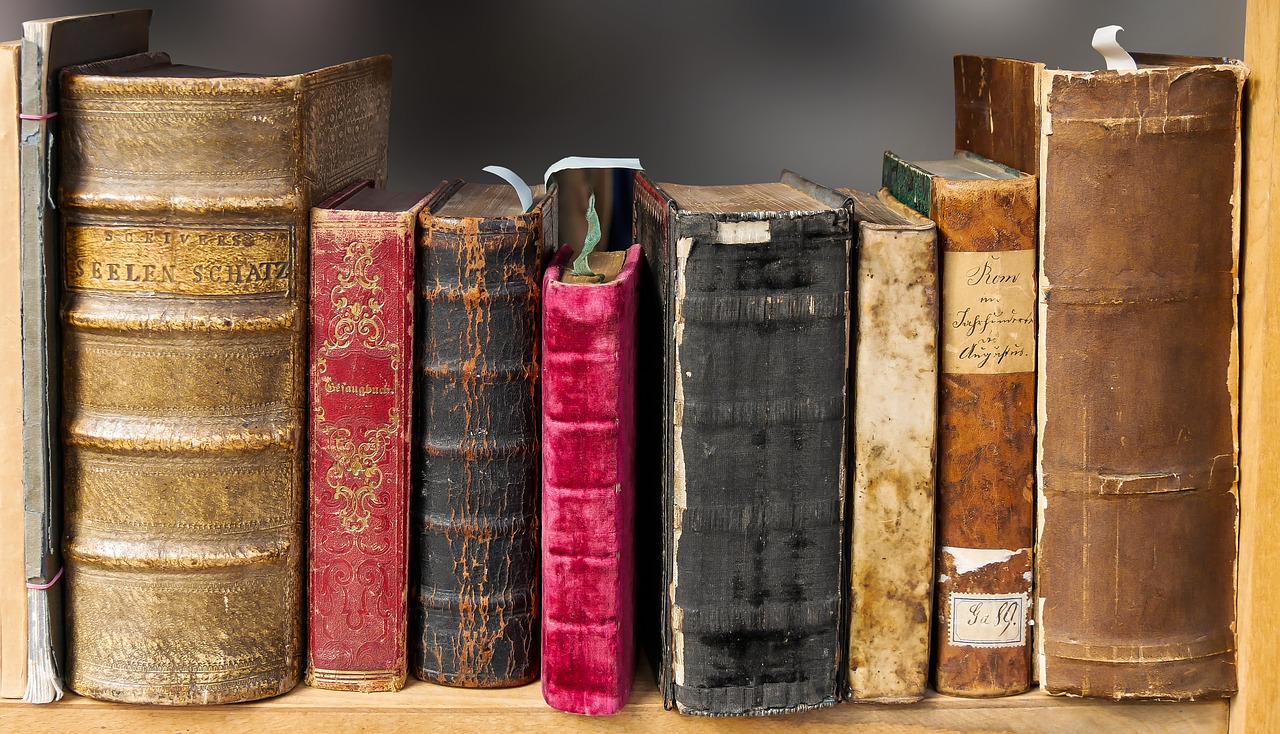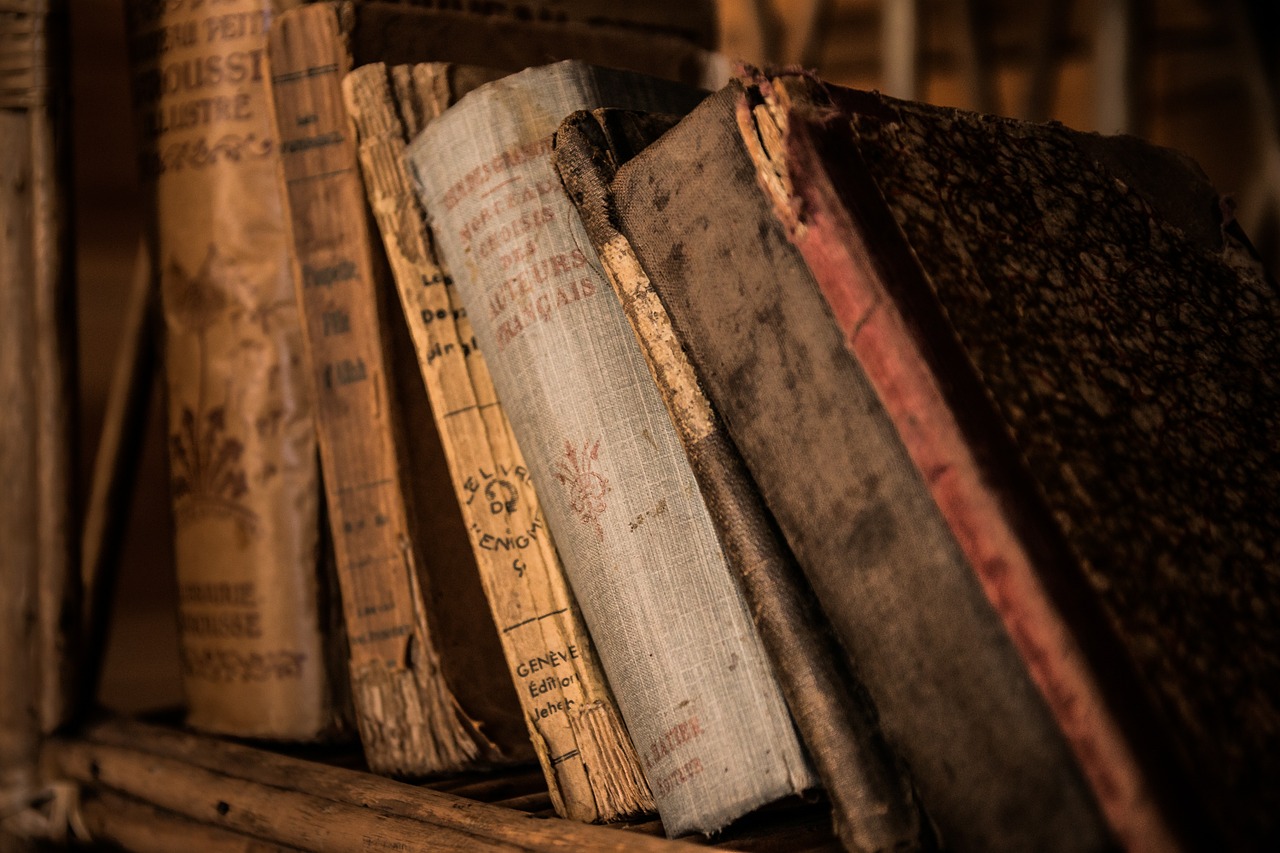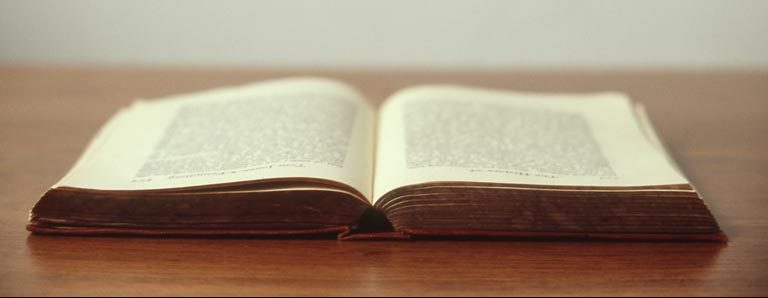Recently, David Butterfield became the First Place winner of the 2007 Collegiate Book Collecting Championship (sponsored in part by Biblio.com; read the announcement here), after taking top prize in the Rose Book Collecting contest sponsored by Cambridge University. His collection, “Landmarks of Classical Scholarship”, is comprised of 2,500 volumes centered on Roman and Greek authors. Despite being heavily engaged in academic research at Cambridge University, David agreed to talk with us a little regarding his love of books and the academic passion which fuels it.
B: While Book-Collecting contests are nothing new, many people have never heard of them. Can you tell us a little about the nature of the contest, and your participation?
DB: The criteria for winning the prize were varied. Most important were the cohesiveness, originality and bibliophilic interest of collections. Naturally, the rarer and more particular a given item, the more important it is within any collection. Fortunately I included many unique items in the hundred books that I chose to submit. Of additional interest to the panel of judges were mattres relating to the collectors themselves; the collector’s ingenuity, drive and familiarity with his/her collection were
certainly important factors.
B: What first inspired you to actively collect books?
DB: I have long had an interest in Classical books, since perhaps my early teenage years, but it was arriving at Cambridge and being stunned by the sheer volume of second-hand and antiquarian books (not only in Classics but in almost any field) spread throughout the city’s bookshops that ignited my desire to build an antiquarian Classical library. As to why I collect books, they are quite incomparable items to collect. I would never collect badges or spoons.
B: What factors most draw you to a book for your collection?
DB: Content always reigns supreme. Its handmaidens are association (through whose hands the book has passed, what annotations adorn the pages), aesthetic and rarity. It is very rare that I buy a book which is on sale at a good price purely because I know its value to be significantly more. On the other hand, it would be nonsense for me to say that monetary value does not come into play in my collecting, for all collectors (whether for good or ill) are necessarily at the mercy of the sellers who price their stock.
B: What particular content do you search for, aside from the general category of Greek and Roman authors?
DB: What I call ‘rigour’ is the main feature I hope to find in a book. That is, the writer must be well familiar with Latin and/or Greek as well as minutiae relating to the subject of the work; the resultant work should be clear, suitably authoritative, original and (if these criteria are met) necessarily interesting. A lot of Classical work I would not describe as rigorous.

B: Have you read all the books in your collection?
DB: No; although it would be phenomenal to have mastered all of my library (currently numbering some 2,500 books specifically on Classical matters), the nature of both my research and my collection is such that rarely would it be fitting to sit down and read a given book from cover to cover. If I live a life of the conventional length, I hope at the end to own a library 75% of whose pages have been closely read.
B: Do you know many others who share your interest in books by Roman and Greek authors or do you feel you are working to preserve them in a world which has forgotten their importance? Does your family share your interest in Classics, or was it a path you stumbled onto as you pursued your education?
DB: My family has no history of studying Classics or even of much activity in academia. Both of my parents are optometrists. The primary people with whom I discuss the collecting of antiquarian Classics books are Classical scholars, generally over the age of 50. Nonetheless, a number of colleagues at Cambridge closer to my age appreciate the value of these books and are always prepared to lend an ear. They are typically puzzled by the sheer level of my interest however. Yet, regardless of whether people are interested, the preservation of (often unique) items from the last five centuries, however obscure, is both an important service and an intrinsically enjoyable activity.
B: What is your favourite book in your collection? How did you obtain it?
DB: My favourite book is the second Aldine edition of Lucretius (Venice, 1515). The volume is an edition of the Latin poem ‘De rerum natura’ by the philosopher-poet Lucretius (94-55 BC), on whom my academic interests primarily focus. Not only is the book rare ipso facto because of its age, but Aldine editions are great desiderata for modern antiquarian collectors and therefore seldom enter the second hand market, save for at ridiculous prices. Therefore when a copy of this edition was advertised at auction, I knew that this was a cardinal opportunity that could not be missed. With Horace’s ‘carpe librum’ (or something similar) ringing in my ears, I was determined to bring the book into my library. I am, however, not a man of great financial means, so certain cuts had to be made: I sold my prized letter of the great Classicist-poet A. E. Housman to an American dealer and bought and sold an Aldine edition of the Roman poet Ovid in order to gain the necessary capital. Even with these financial accruals, my eventual success in bidding on the book laid me low financially for the following months. There is no question that it was worth it.
B: What is it about Aldine editions which make them so valued to book collectors?
DB: Aldine editions are particularly valued for a number of reasons, both bibliophilic and academic. The Venice publisher Aldus Manutius was acutely conscious, at the end of the fifteenth century, that the rise of Classical interest during the flowering of the renaissance meant that there was the largest market for perhaps a millennium for the purchase of Classical texts. With the art of printing some fifty years old, Aldus appreciated that the potential for producing good quality, and also easily portable, Classical texts was great. He therefore engaged in a series known as the Aldine Pocket Classics. These books are remarkable for their aesthetic charm (octavo, with uncramped pages, typically opening and closing with the famous Aldine anchor) as well as their critical excellence: Aldus typically secured accomplished Classical scholars to work upon his Latin and Greek texts and they were often the mainstay of sixteenth and seventeenth century criticism of the author in question. The second Aldine edition of Lucretius, produced as Aldus was in his final days and entrusted to the capable hands of Naugerius, is one of the critical jewels of the Aldine crown.
B: What would you describe as the most extraordinary effort you have ever put into achieving ownership of a book?
DB: It is difficult to speak of any particular thing, but I would probably say my learning basic Danish to charm a Scandinavian bookseller to sell, at a discounted price, a copy of an important 19th century book on Greek syntax: GrA|sk OrdfAiningslA|re, isA|r for den attiske Sprogform (Copenhagen, 1857) by J.N. Madvig, inscribed by him (one of the two greatest Latinists of the nineteenth century) to A.S. Wesenberg, the editor of Cicero.
B: What is the first book you remember falling in love with?
DB: Love is always a strong word and should not be bandied about. Nonetheless, love it was when a pristine copy of Porson’s ‘Letters to Travis’ (London, 1790) fell into my trembling hands. ‘Letters to Travis’ is a series of observations, published together as his first book in 1790, which seek to argue that certain verses of the Bible are spurious additions by later hands. Porson was neither particularly religious nor reverent, and his taste for the comic was excellent. The result, therefore, is a devastating attack (ultimately modelled on Bentley’s ‘Dissertation on the Epistles of Phalaris’, a great work of which I have the first (1697) and second (1699) editions) on the flaws of his contemporaries in the world of letters, which is a sparkling joy to read. My own copy was particularly exciting since it was in excellent condition, being bound in contemporary calf and with pages as fresh as in the eighteenth century. I acquired the book from a London-based seller as soon as I saw it.
David is continuing to work on his collection while pursuing his studies at Cambridge, and will be attending the Collegiate Book-Collecting Championship award ceremony in Seattle this October.






a pristine copy of Porson’s ‘Letters to Travis’ – how many such pristine copy might exist, still? hmmm. And this is #1 comment when 14 years ago this intereview posted? wow. -s.ye